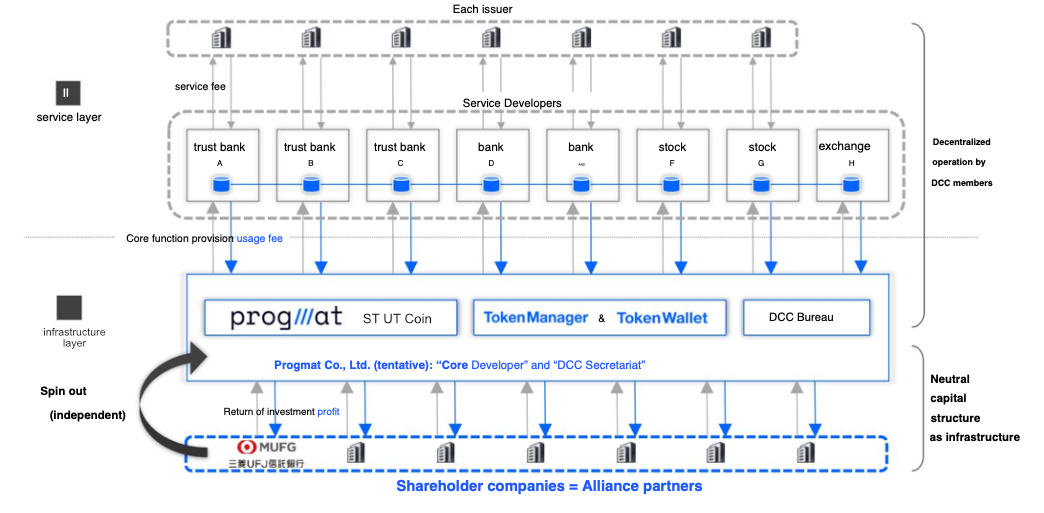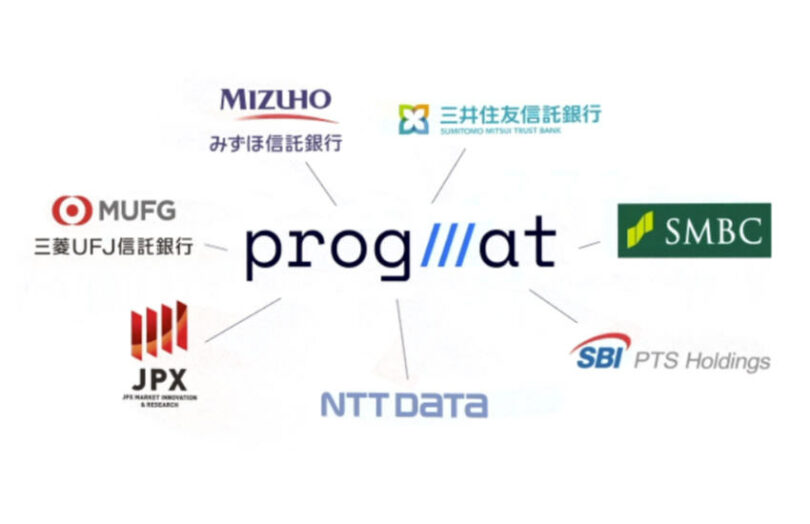Japan’s largest bank, MUFG, has been working for years to develop a security token platform, Progmat. It recently expanded its digital asset solution beyond securities to support utility tokens, stablecoins and a wallet infrastructure. The bank concluded that rather than developing the solution itself, it needs to be co-created by the industry and housed in a neutral venture.
Hence it is discussing creating a joint venture with SMBC, Mizuho, Sumitomo Mitsui Trust, SBI PTS (owner of Osaka Digital Exchange ODX), JPX (owner of the Tokyo Stock Exchange), and NTT Data.
In 2019 MUFG created the Security Token Research Consortium, which earlier this year was renamed to the Digital Asset Co-creation Consortium (DCC). As a sign of the growing interest in digital securities in Japan, the DCC has grown from 80 members in February to 163 companies today. The Consortium’s work is focused around using Progmat.
Until now, MUFG owned the intellectual property in Progmat’s software and managed the DCC consortium’s governance. With this new national digital asset infrastructure, the technology will be transferred to a new joint venture company, Progmat Co (tentative), and the secretariat of the DCC will be responsible for governance.
While the security token platform was initially seen as the core application, now the Progmat Coin solution is considered critical and intended to be used for securities settlement, either on Progmat, other digital securities platforms and beyond.
The Progmat Coin is different from the conventional stablecoin concept. Firstly, there will be multiple coins, each backed by a pool of money ringfenced in a trust. Using the Progmat Coin infrastructure, the transfer of coins means that payments don’t touch the banking system, similar to public blockchain payments.
Another key difference is that the current focus is on a wholesale stablecoin, mainly for institutional use. It is referred to as RTGS (real-time gross settlement) on Progmat. The Progmat Coin is intended to be used for settlement on multiple token infrastructures. So part of the recent work has focused on cross-chain ‘RTGS’ payments where the blockchains use different technology. Progmat uses the R3 Corda enterprise blockchain.






